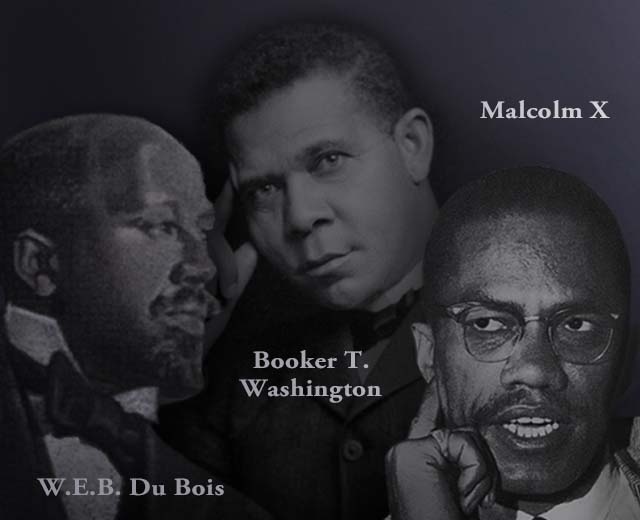When I was a student at Morgan State University in Baltimore, I first heard about the segregation wall during a meeting with my mentor and history professor, Dr. Rosalyn Terborg-Penn. I had read about the desegregation protests led by students at the Northwood Shopping Center across from the college in the 1950s and 1960s. I wanted to write a paper about the protests and was discussing it with Dr. Penn.
At one point, Dr. Penn looked at me from the corner of her eye and said, “You know about the segregation wall, right?”
“What wall?” I responded.
“The long brick wall along the side of Hillen Road,” she said. “It was built to keep Black people out of Northwood.”
I was stunned and wanted to know more. I walked past the wall every day as a student, not knowing its history. I had simply accepted it as part of the landscape.
I learned that the neighborhood surrounding Morgan had once been all-white and had attempted to stop the relocation of the historically Black college to northeast Baltimore in 1917. When their attempt to stop the relocation failed, the residents erected numerous social and physical barriers including the wall to prevent anyone from Morgan from entering their neighborhood and shopping center. The wall was built to keep Black people in as much as it was intended to keep them out.
By the 1960s and 1970s, the passage of civil rights laws combined with white flight from Baltimore City meant that the shopping center and neighborhood were no longer markers of racial apartheid. Although the neighborhood composition had changed and its meaning over time slowly faded from memory, the wall remained until it was finally torn down in April 2023.
The wall’s existence illustrates why studying and understanding African American history is essential. As the director of history and African American studies at University of Maryland Global Campus (UMGC), a minority serving institution, I am sometimes asked by my students why I think studying Black history is important. I think what they are really asking is how can they explain its importance to the friends, family members, and colleagues they see and interact with daily. Although our society acknowledges Black History Month and honors Dr. Martin Luther King’s birthday, Americans too often deal with their history simplistically.
Here are six reasons why the study of Black history is important:
1. Recognizing African American contributions to American and world history.
African Americans have made countless significant contributions to the history of art, literature, politics, music, science, medicine, technology, agriculture, business, education, and sports. Formal efforts to celebrate Black achievements began with historian Carter G. Woodson, who inaugurated Negro History Week in February of 1926 to coincide with the birthdays of Abraham Lincoln and Frederick Douglass. The celebration of Negro History Week later expanded into Black History Month during the 1970s. Most importantly, the Black Freedom Movement (as many scholars prefer to call it) has challenged and expanded the idea of what it means to be a citizen from the American Revolution to the 21st century. Numerous human rights activists around the world, from South Africa to Northern Ireland to Hong Kong, have also been inspired and influenced by African American protest movements.
2. Confronting racism and discrimination.
Learning about the efforts of Black legislators in South Carolina to build public schools after the Civil War, the struggles of Black veterans returning home after fighting against fascism in World War II, or how the federal government resegregated cities through urban renewal programs even as schools were officially desegregated, helps us understand and confront systemic racism and discrimination. We learn from Black history that racism is much more complicated than a water fountain marked “Whites Only.”
3. Inspiring generations of activists.
African American history is filled with stories of bravery, determination, and complexity from the transatlantic slave trade to the present. Such stories have inspired both Black and non-Black activists to challenge the status quo and demand change, whether it was the abolition of slavery, the desegregation of lunch counters, or an end to systemic racism in education, law enforcement, social welfare agencies, and the disproportionate impact of environmental pollution.
4. Understanding more fully the mosaic of American and world history.
When I taught about the Civil Rights Movement during a U.S. history survey course in graduate school, a student mentioned it in their evaluation and wrote, “I thought we were learning about U.S. history. If I wanted to take a Black history class, I would have.” I had failed to teach the student how African American history is woven throughout American and world history. Understanding that history forces students to broaden their comprehension of historical trends and events, social and cultural movements, and even scientific and medical developments.
5. Promoting critical thinking.
Regardless of a student’s interest or major, the study of African American history encourages the development of critical thinking. The segregation wall at Morgan provides an excellent example. The wall was not unique; it was part of a long history in Baltimore City and in other American cities of erecting physical and social barriers to limit Black freedom and movement. Over time, the barrier became an accepted part of the neighborhood’s geography. How many other physical markers and social practices of racial apartheid do we walk by every day unknowingly or uncritically accept as the way life has always been?
6. Encouraging better citizenship.
Finally, African American history is important because it encourages better citizenship. It emphasizes the ties that bind together individuals, communities, and generations. It illuminates the struggles to redefine and expand constitutional and human rights, both for Black and non-Black people. Throughout American history, students can draw a line connecting antislavery activists, feminism, Indigenous American resistance, civil rights activism, the labor movement, peace activism, and environmental justice.
The study of Black or African American history may be the most important subject a student takes in their K-12 school or college. That history ultimately is as much about the present and the future as it is about the past. It is so much more than a single month or Dr. Martin Luther King’s birthday; it is about what country do we as Americans want to see and build and what values are important to us. If we neglect or deny this history, we reject who we are and what it means to be an American.
UMGC is proud to recognize the central importance of Black History Month. In addition to unique events sponsored by the Office of Diversity and Equity and the university’s Heritage Month programs, the history and African American Studies program offers students the opportunity to take courses in African American history and culture. In doing so, we carry on the work and vision of Carter G. Woodson who sought to engage all people, not just historians, in the importance of learning about Black history.
Reference on this webpage to any third-party entity or product does not constitute or imply endorsement by UMGC nor does it constitute or imply endorsement of UMGC by the third party.



